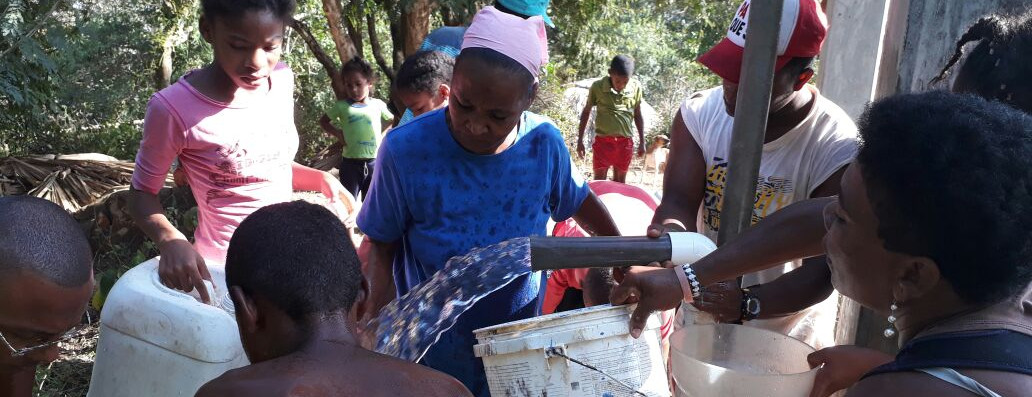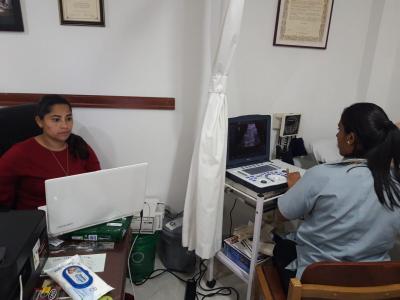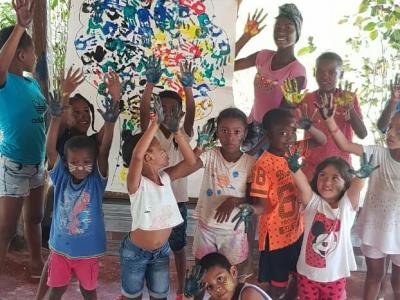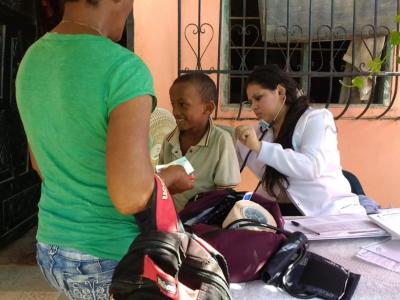
Health and Water
We work in areas where entire generations have been wiped out by armed conflict, where villages have no latrines or sources of improved water, where malnutrition is common and where there are no health services. Afro-Colombians and indigenous people are often discriminated against and denied their basic rights when attempting to access government healthcare. Lack of accountability of local government is widespread and the under-resourced communities are left without a voice.
Commercial healthcare providers lack the incentive to operate in these areas and corruption is rife among local government. There is no health prevention to speak of. Centrally run health education campaigns don’t reach the most vulnerable and when they do, the health messages are often inaccessible as most of the population have no more than five years of schooling and their functional literacy is limited.
Exacerbated by the cost of transportation and the state of dirt roads, people don’t address their symptoms until they become severe. It is this absence of health awareness and delay in seeking initial care that leads to irreversible damage and to the development of chronic conditions, and makes the cost of any subsequent care prohibitively high. The loss of income due to bad health and medical costs move already poor households into extreme poverty. Our work addresses the issues of community health education, diagnosis, treatment and livelihoods - trying to break the perpetuating cycle.
What we plan to do next
Download Reaching the Unreached
Spotlight on Brisas del Mar
The clinic
The next nearest government health center to Brisas del Mar is 14 miles away by dirt track - a journey which can take over two hours in rainy conditions, and which is usually only passable by motorbike. If the residents of Brisas are fortunate enough to make the journey successfully, they are often denied access due to the discrimination that is rife against indigenous and black people.
Our own clinic, IPS Clinton Rabb, provides essential health services to the 3000 people in the villages of Brisas and those around it - comprising an exam room, a labor and delivery room (also used for minor surgery), a dental office, a pharmacy, and a room for overnight stays.
Water supply
With the cooperation of village residents, groups of volunteers from the United States and professional tradesmen, a project was completed in 2017 to provide a continuous and reliable water supply to the village.
In addition to drilling of the well and installation of the pump, the project required construction of a pumping station and extension of electricity lines to reach it, construction of an interim tank between the pump and the village, and digging several kilometres of trenches and installing pipework.
The pump is now in full operation, filling the water tower which was already existence in the centre of the village. Many homes already have a connection with the water tower, but the project will now seek to increase the number of houses receiving a supply from the tank. Ongoing maintenance of the entire system will be funded by monthly payments collected from each household, under a a management system devised and operated by the residents.


